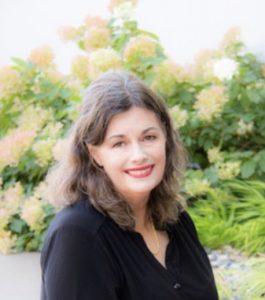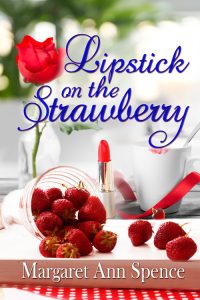How Childhood Reading Shapes Identity
 Little Women turned me into a writer. I identified with Meg, but longed to be Jo.
Little Women turned me into a writer. I identified with Meg, but longed to be Jo.
In Concord, Massachusetts, visitors to the Orchard House can see the tiny desk on which Louisa May Alcott wrote Little Women in 1868. Visitors to the Alcott family home also learn that Bronson Alcott, an idealist and progressive teacher, could not provide adequately for his family. Sometimes the family survived on apples from their orchard. So in order to help her family’s finances, Louisa May took pen to paper and wrote her classic book in four months. It was an instant best seller and has remained so ever since.
I devoured Little Women and its sequels as a child. With three young siblings of my own, I understood the tide-swings of emotions affecting the different members of the family. I recognized Jo, the future writer, as a kindred spirit, but as the eldest child put in charge of the younger ones, and as a child with the same name, no less, I identified with Meg. Meg and Jo conflated in my mind, and I knew that I would be both a nurturer and a writer.
The novel sets these life goals as conflicts. Meg is the compliant, “little woman” I, too, was trained to be, as the only girl in a tribe of boys. But Jo was the writer who fought for the right to self-expression.
My old green hard-cover of the book must have explained that the March family mirrored the actual Alcott family of four girls. Entranced by this information, I decided to write about families, too. It was after all, all I knew. Until recently, those early efforts had been forgotten.
Cleaning out old papers before a house renovation last year, I found my earliest attempt at a novel. It featured the eldest girl in a nineteenth century family of seven siblings. They went on a long sea journey, and I described the sails and the food on the ship and people getting sea-sick. The plot meandered, but the dialogue was great! I was so surprised to find this when I read my penciled cursive in the blue lined exercise book again. I think I was eleven years old when I wrote this first book, that magic age when girls believe they can do anything. That all changes at puberty, according to the psychologists.
Still, like Louisa May Alcott, I always believed I would write for a living.
After all, I had role models for this. My aunt Nan was a journalist, supporting her family through her weekly newspaper article and a lonely hearts column at a women’s magazine. A friend’s mother wrote for radio, as had my own mother, before I was born.
I did become a journalist and a publicist and I did earn money from my writing. However, that was then. A few years ago I turned to writing fiction. Unlike non-fiction, the incubation time for a novel is long – at least for me. The writing of 90,000 words takes several months to a year. Then there is the journey to publication, and the necessity for marketing.
One hundred and fifty years after Little Women was published, I write novels. I do not make a living at it. Only a few ever have or ever do.
As inspiring as Alcott’s novel has been to generations of girls, the message is mixed. I identified with Meg because unlike Jo, I was never disappointed to be a girl and I love pretty dresses. Alcott’s apparent indifference to the joys of sex also sends a confusing, outdated message. It’s hardly an original observation to say that I was disappointed in Jo’s choice of husband. Professor Bhaer is old enough to be her father and while they have a meeting of the minds, the reader never feels physical attraction between him and Jo. This reinforces the nineteenth century convention that sex is in a different realm to intellect. It took another century for girls to think they didn’t have to choose between a satisfying career and a good marriage.
Once she married, Jo never made a living out of writing. She started a school with her husband. Perhaps Alcott was sending a message: Don’t give up your day job! So, proto-feminist as she might be considered now, Alcott’s story of girls – their ambitions, their loyalty to their families, and their compromises in love – does not sort out the contradictions and conflicts inherent in their lives.
Have things really changed all that much? Recently a famous female writer was asked how she managed to write so prolifically when she had two young children. She replied that a male writer would never be asked that question.
Nevertheless, for my inspiration for being a writer, I am forever grateful to Louisa May Alcott.
—
Born in Australia, Margaret has made the United States home since the age of twenty-three. She has a master’s degree in journalism from Boston University. She’s written a slew of press releases, many freelance articles for newspapers and magazines, and now, when she doesn’t have to worry any more about children underfoot, a novel. She loves the idea of creating something beautiful from unpromising beginnings. She blogs and reviews books by women at www.margaretannspence.com.
Reach her at http://www.facebook.com/margaretannspence
Her debut novel, Lipstick on the Strawberry, won the Beacon Contest, sponsored by First Coast Romance Writers in 2015.
About LIPSTICK ON THE STRAWBERRY
 Estranged from her English family, Camilla Fetherwell now lives in the United States and owns a successful catering business. Returning home for her father’s funeral, she reunites with her first love, Billy, whom she hasn’t seen since her father broke up their teenage romance. Billy seems eager to resume their love affair. But after one blissful night together, things take a turn.
Estranged from her English family, Camilla Fetherwell now lives in the United States and owns a successful catering business. Returning home for her father’s funeral, she reunites with her first love, Billy, whom she hasn’t seen since her father broke up their teenage romance. Billy seems eager to resume their love affair. But after one blissful night together, things take a turn.
Camilla suspects her father may have led a secret life, and when Billy reveals something he, too, has discovered, her apprehension grows. Billy holds her heart, but their relationship might be tainted by what her father hid. A reunion seems impossible.
Her life feels as splattered as her catering apron. As she watches her food stylist make a strawberry look luscious with a swipe of lipstick, Camilla wonders if a gloss has been put over a family secret? Can she and Billy survive what’s underneath?
BUY THE BOOK HERE
Category: On Writing




I enjoyed reading your views on Alcott from today’s perspective. I find it interesting that you referenced a famous female writer’s response to the question of how could she write so prolifically with having two children, her response being a male author would not be asked that question. Yet, in the bio following your post it mentions that now without having children underfoot you are writing a novel. I think worldwide the responsibility for raising children falls to the women and naturally a man would not be asked about that in the course of him performing his career duties. So why are women up on their haunches over such inquiries? I think it is because women have additional roles to play in addition to writing that the question implies high compliment, and should be received as same, and with pride in self. I’m glad I found your name and look forward to reading more from you.